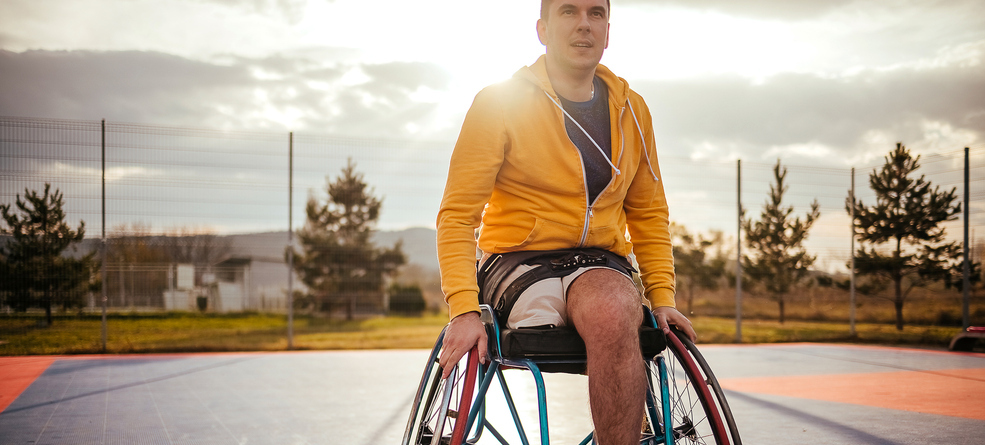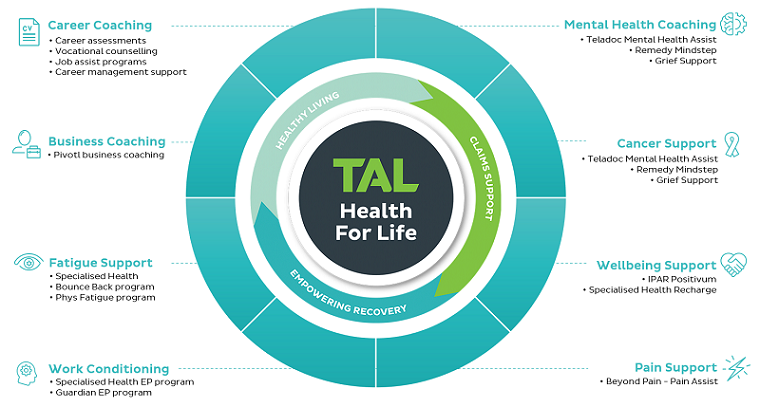Empowering recovery: a member-centred approach
Health & Wellbeing -
We recently caught up with Roger Clark, who leads TAL’s Recovery and Support team to find out how members are being supported and empowered on their road to recovery and how his passion for a person-centred approach is helping members get their lives back on track.
What are the Recovery and Support Services team’s responsibilities?
The core responsibility of the Recovery and Support Services team is to empower member recovery to help members reach their best possible state of health with a personalised approach. The team is made up of allied health professionals from a range of disciplines dedicated to supporting member outcomes.
Apart from working directly with members on claim, the team has an important role in working with our claims consultants, so they have the knowledge to support and guide members through the early phases of their claim. Ensuring members have access to the right services at the right time to support their health and return-to-work goals is key to achieving the best possible outcome.
How are the services delivered?
While we have a broad range of expertise within the team including occupational therapists, physiotherapists, exercise physiologists, rehabilitation counsellors and psychologists. We acknowledge we don’t have all the answers, so we’ve built a network of best-practice partnerships which provide us access to expert evidence-based specialist recovery providers.

How has your background influenced the way you approach recovery and support at TAL?
I learnt early on in my career in social work and mental health, that the best outcomes always resulted from a position of treating each person as an individual. I’ve continued this approach in my role with TAL. The whole Recovery and Support Services team are focused on understanding how best to approach each unique member situation. In the current economic climate, we’re finding we’re dealing with more and more people in potentially vulnerable situations, and we’ve addressed that by having social workers available to support a range of challenges that might have otherwise impacted a member’s recovery.
What is one of the programs you’re working on the moment that’s producing great results?
Earlier this year we commenced a program that we’re really excited about called Strength Profiling. It’s showing some positive early results with excellent participant feedback. It’s specially designed to help our team understand each member’s communication style, preferences, strengths and areas of potential challenges. It provides feedback and strategies on ways to build a strong relationship and maximise the opportunities for success in a member’s return to health journey. We’ve found it helps support effective communication between the member, claims consultant, rehabilitation consultants and other members of their care team.
What does success look like for your team?
While we’re certainly focused on the numbers, it’s the experience and outcomes of the members we work with that’s absolutely critical to our success. We have a range of support programs available to suit the recovery needs of each member. The top three utilised in our last financial year were Exercise/Work Conditioning, Vocational Rehab and Cancer Support. During this time, 1,133 health support services were undertaken by members and 84% of members increased their capacity for work or were working following TAL health support services. That’s a great outcome but we don’t ever rest on our laurels and we’re always striving for continuous improvement.
Find out more
Visit our Group HQ page or speak with your TAL Partnerships Manager if you’d like to know more about TAL’s approach to empowering recovery through health support services.
